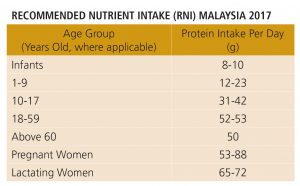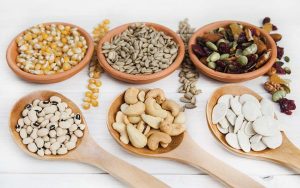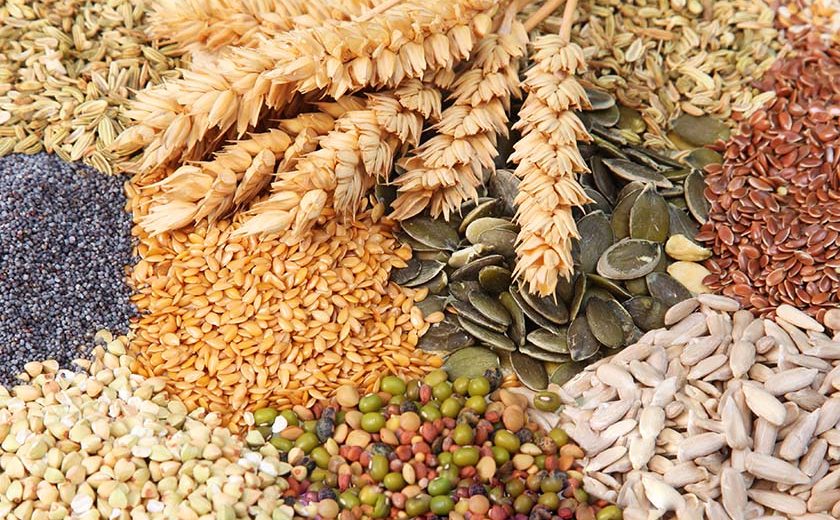Everyone knows protein intake is important and because our bodies do not store protein, it is crucial to get sufficient amounts from our daily diet.
The conventional source for protein as we know it has typically been from animals. However, in recent years, research has shown that protein obtained from plant-based diets offer significant health benefits for our overall well-being. In an article brought to you by Sunway Medical Centre, here are 8 things you need to know about protein and plant-based protein.
1. First things first, how do our bodies use protein?
The amino acids that are the building blocks of protein come in two forms – essential and non-essential. Our bodies are able to produce the non-essential amino acids, but there are nine essential amino acids that can only be synthesised from the food we eat. These nine essential amino acids are: histidine, isoleucine, leucine, lysine, methionine, phenylalanine, threonine, tryptophan and valine.
2. What is plant-based protein?
Plant-based protein refers to plant sources that contain high amount of protein such as beans, lentils, peas, soy products, nuts, seeds and whole grains.
3. Do I have to be a vegetarian or vegan to benefit from a plant-based diet?
While more and more people are turning to vegetarian diets amidst growing concerns about health, the environment and animal welfare, going plant-based does not mean you have to give up meat. A plant-based diet still allows for small amounts of animal products in the diet, especially fish and lean meat.
4. What are the differences between plant-based protein and animal-based protein?
Plant protein on the other hand, may be lacking in one or more essential amino acids. Generally, plant sources also contain smaller amounts of protein than animal sources. However, certain vegetable sources of complete protein are available such as soy and quinoa. Adding various plant-based proteins to your diet can also offer the same benefits as animal protein, for example, combining red beans or lentils with wholegrain rice provides complete protein.
Besides the differences in amino acid profile, animal protein contains other nutrients like Vitamin B12, Vitamin D,DHA (an essential omega-3 fat), heme-iron and zinc, which is lacking in plant foods. Vitamin B12, for example, is crucial for the formation of red blood cells and production of DNA. Heme-ironis much better absorbed in the body as compared to non-heme iron in plant sources. DHA is crucial for brain health and hard to get from plant sources.
5. If plant-based proteins are low in some essential amino acids, why consider a plant-based diet at all?
According to Harvard Medical School, a growing pool of research and studies are confirming the health benefits of a plant-based diet, which is now recognised as not only nutritionally sufficient, but also as a way to reduce the risk for many chronic illnesses.
As we grapple with juggling the daily demands of a hectic lifestyle, it is becoming increasingly important that we find ways to manage stress that can take a toll on our health. There is mounting evidence towards the fact that diets high in plant protein have been linked with many health benefits that can promote overall wellness.
One of the most advanced and comprehensive study ever conducted on the relationship between diet and the risk of developing disease, The China Study, has shown direct correlations between nutrition and heart disease, diabetes and cancer. The study proved that cultures eating primarily plant-based diets have lower to no instances of these diseases and switching to a plant-based diet can help reverse diseases already established in the body.
- Hypertension Control and Lower Risk of Heart Disease
Lots of research, including some from the Harvard School of Public Health, have demonstrated that a plant-based diet can help protect against heart disease.
An OmniHeart (Optimal Macronutrient Intake Trial for Heart Health) study found that a diet rich in protein, half of which is derived from plants, lowered blood pressure, cholesterol levels and the risk of heart disease more than a standard diet or healthy high-carbohydrate diet. High blood pressure puts us at higher risk for heart disease and stroke, the top two leading causes of death globally.
In a separate study, which tracked the health habits of about 110,000 people for 14 years, Harvard researchers found that higher intake of plant-based diets lowered the chances of people developing cardiovascular disease.
- Reduced Risk of Type 2 Diabetes
Approximately 425 million adults are living with diabetes, according to the International Diabetes Federation and by 2045, this number is expected to soar to 629 million. The proportion of people with Type 2 diabetes is increasing with 352 million people at risk in 2017.
Type 2 diabetes is entirely preventable. Large cohort studies have demonstrated that the prevalence and incidence of the disease are significantly lower in those consuming more plant-based diets, which generally include legumes, whole grains, fruits, vegetables and nuts that are also high in fibre, which can further help lower cholesterol and blood sugar.
Another study of people with Type 2 diabetes found that replacing two servings of red meat with legumes 3 days a week improved cholesterol and blood sugar.
- Protection Against Long-Term Weight Gain
Diets high in plant protein have been shown to help with weight control, especially in the long term.
An observational study following 120,000 people over 20 years found that eating more vegetables, nuts, fruits and whole grains was linked to significant weight loss .
Consuming more plant-based protein also leaves you feeling fuller on fewer calories, which in turn can help with weight management and weight loss.
6. How much protein do we need a day?
Protein needs are determined by several biological factors including age, gender, physiological state such as the presence of infections or injuries, pregnancy and lactation.

7. What are the best sources of plant-based protein?
Tofu, soybeans, tempeh, edamame, kidney beans, black beans, lentils, dhal, hemp seeds, pumpkin seeds, sunflower seeds, flaxseeds, chia seeds, chickpeas, green peas, black-eyed peas, split peas, peanut, peanut butter, walnuts, almonds, hazelnuts, cashews, pistachios and grains such as quinoa, oatmeal and buckwheat and some vegetables such as kale and spinach.
To ensure you meet your protein needs, just focus on including these protein-rich foods in every meal and snack throughout the day. For instance, you can sprinkle some chia seeds into your breakfast oatmeal or morning drink, add chopped nuts and seeds into your salad for lunch and add peanut butter spread to sliced fruits like apples or pears for dessert.

8. Who would benefit from eating plant-based protein?
The Academy of Nutrition and Dietetics states that a plant-based diet is appropriate for all stages of the life cycle, including pregnancy, lactation, infancy, childhood, adolescence, older adulthood and for athletes.
In a nutshell, although animal protein contains all the essential amino acids, consuming only or more plant-based protein can be healthful and nutritionally adequate.
The Academy of Nutrition and Dietetics suggests that as long as you include a variety of whole plant foods in your diet throughout the day, you can still get enough of all the essential amino acids from plant-based protein. If you are not on a vegetarian diet, eating balanced amounts of both animal and plant-based protein is a good way to get all the nutrients you need.
Reference
- https://www.medicalnewstoday.com/articles/196279.php
- https://www.health.harvard.edu/staying-healthy/becoming-a-vegetarian
- https://www.benbellavegan.com/book/the-china-study-revised-and-expanded-edition/
- http://www.collective-evolution.com/2016/09/27/plant-based-protein-vs-protein-from-meat-which-one-is-better-for-your-body-dont-publish-waiting-for-picture/
- https://www.ncbi.nlm.nih.gov/pubmed/16287956
- https://health.usnews.com/health-news/health-wellness/slideshows/reasons-to-choose-a-plant-based-diet?slide=4
- https://www.idf.org/aboutdiabetes/what-is-diabetes.html
- https://www.ncbi.nlm.nih.gov/pmc/articles/PMC5466941/
- https://www.ncbi.nlm.nih.gov/pubmed/25351652
- https://www.ncbi.nlm.nih.gov/pubmed/21696306


